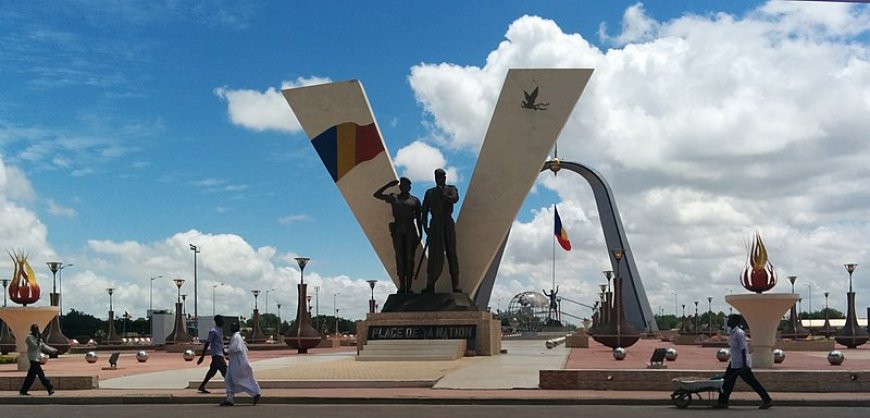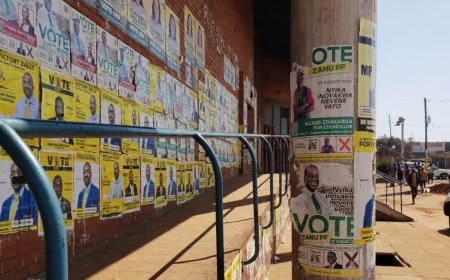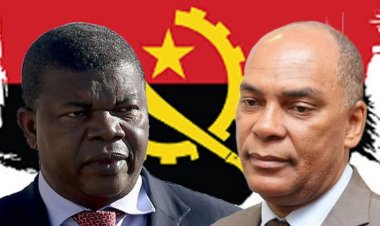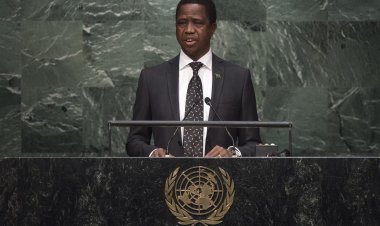Colonel Idriss Déby took power in December 1990 following a military coup that ousted his predecessor, Hissène Habré. Déby ruled Chad for three decades until he was killed while fighting Libyan-based rebel group Front for Change and Concord in Chad (French: Front pour l'alternance et la concorde au Tchad), or FACT, in Zigueï, close to Chad's border with Niger. This was on the same day that Chad's electoral commission declared him the winner of the April 11 presidential elections. He had been re-elected to a sixth term with 79.32% of valid votes cast. Leaders of major opposition parties had boycotted the elections, alleging violence from security forces and brutality against protesters. They maintain that the conduct of the election was not free and fair, and so questioned the validity of its results.
On the same day that Idriss Déby was killed, a military junta calling itself the Transitional Military Council (TMC) seized power in N'Djamena. The TMC appointed Mahamat Idriss Déby, one of the dead President's sons and a 37-year-old four-star general, as its head and President of Chad. A group of senior officers, including the minister of national defense, established the TMC, which gave itself a mandate to govern for 18 months. The TMC suspended the constitution and dissolved the parliament and the government. On May 2, it established a transitional government and named a civilian, Albert Pahimi Padacke, as Prime Minister. Padacke served as Prime Minister under Déby from 2016-2018, and although he ran against Déby in the April 11 elections and came second with 10.3% of valid votes cast, he was considered Deby's ally.
Where Things Stand
Déby supporters back the seizure of power by the military junta. This is the case of Mahamat Zène Bada and Jean-Bernard Padaré, respectively the secretary general and national secretary in charge of communication of the Patriotic Salvation Movement (MPS), the late President's party. This is also the case of General Bermandoa Azem, spokesman for the Transitional Military Council. They consider the FACT rebel group a threat to security and the central government in N'Djamena. They feel that military control is Chad's best option at fighting off FACT and other militant groups like Boko Haram that operate in the Lake Chad region and the south of the country, near the border with the north of the Central African Republic, which is home to several armed rebellion movements such as the Seleka, the Front populaire pour la renaissance de la Centrafrique (FPRC; Popular Front for the Central African Renaissance), and the Union pour la paix en Centrafrique (UPC; Union for Peace in Central Africa). Other Chadians believe the opportunity of the President's death should be seized to establish a stable constitutional democracy in Chad. This is the case of opposition leaders such as Succès Masra, President of the party Les Transformateurs (The Transformers), and the collective Wakhit Tama (The Time Has Come), made up of a dozen civil society organizations. Their opposition against the TMC and the transitional government were remarkable. They called for a transitional civilian government amid violent protests reported to have caused nine to 23 deaths.A Very Precarious Economic Context
The ongoing security and political crisis aside, the socio-economic situation and prospects are at best mixed. Despite the growing insecurity and weakening democratic governance, the Mo Ibrahim Foundation reports that Chad recorded positive changes in its economic opportunity and human development indicators for the period 2010–2020. The Foundation attributed this socio-economic evolution to progress made in the country's infrastructure, health, and sustainable environment sectors. However, Chad still ranks among the poorest countries in the world.
The national economic context remains very precarious, as it depends heavily on crude oil exports. Apart from crude oil, much of the country depends on agriculture, accounting for more than 42 percent of GDP in 2019. Other exports include gold, gum arabic, sesame, cattle, and cotton. Together, all of these constitute more than 98 per cent of Chad's exports. The goal of diversifying the economy has stalled, not least because of the preoccupation with the country's security situation.
The COVID-19 pandemic has significantly impacted the economy. The African Development Bank (ADB) reported that in 2020, real GDP contracted by 0.6 percent. It had been growing at 2.4 percent and 3 percent in 2018 and 2019, respectively. This was caused by the slowdown in trade occasioned by border closures (as part of the measures to fight the pandemic) and a temporary suspension in oil production. This was the underlying economic context before Déby was killed.
It is difficult to separate the effects of Déby's death from the underlying economic difficulties before his death. The kinds of social and economic policies the temporary military government will pursue remain unclear—just as it remains unclear how temporary its term will be. These uncertainties will make it hard to pursue any plans to diversify the economy, no matter how remote the achievement of those plans might have been.
The ADB has suspended the disbursement of funds to Chad because of the unconstitutional nature of the succession to power following the death of Idriss Déby. This will slow down the implementation of development projects that support the national economy, particularly in the agricultural sector.
Other effects will take time to be felt, but the prognosis does not look very good right now.
Going Forward
Chad is in a uniquely fragile situation because it faces the quadruple burden of insecurity from extremists, extreme poverty, political instability, and COVID-19. Nevertheless, there is a path for Chad to leverage its oil revenues to diversify the economy and increase non-oil revenue mobilization. Diversification schemes can prioritize the mechanization and scaling up of agriculture and livestock sectors, value chain development, and improved pricing to guarantee food availability and revenue mobilization. However, it will require the international community's financial support to deliver concerted pro-poor economic and social measures to tackle the low resource mobilization and structural risks imposed by the impact of COVID-19 and reduce the disparity in welfare distribution.
Crucially, Chad has to prioritize interventions that reduce rural-urban inequalities. Interventions must target rural areas where poverty is endemic. There is an urgent need to roll out programs to improve the social safety net of the extremely poor—the World Bank estimates that 42 percent of the population live below the national poverty level. Special anti-poverty interventions must target the female population, estimated to have lower educational levels and poorer than men. Donors can support, but the Chadian government must own the initiatives.
Tackling basic service delivery, food security, and climatic hazards, among other things, will generate inclusive and sustainable development. Basic services are essential building blocks of economic development and fundamental human rights. Development assistance can scale up targeted public spending on improving healthcare access and quality, sanitation, electricity, and education systems, to enhance universal access and improve the living environment. In addition, policymakers must consider policy options to improve food security and climate risks. Climatic hazards, especially drought and high temperatures in the north and the center of the country and flooding in the south of the country, remain a significant threat to food security.
Unemployment continues to be a threat to national security. Current economic conditions make it impossible for unemployed youth, disgruntled with years of stagnant national development and corruption, to secure high-paying jobs. The World Bank estimates that the Chadian informal private sector employs 96 percent of the labor force. The donor community should consider supporting skill-development and job-creation initiatives to increase employment and working conditions in the informal private sector. Also, an investment into generating national-level data to inform development planning, targeting, and intervention would help link planned actions to the real problems of Chadians.
About the Author
Yamingué Bétinbaye is a journalist, editor-in-chief of Journal Chrétien (La Rochelle, France) and lecturer at Emi Koussi University of N’Djamena (Chad) and the University of Moundou (Chad). He holds a PhD in Geography from the University of Ngaoundere, Cameroon, and a Master degree in Information Sciences form the University of N'Djamena, Chad.




